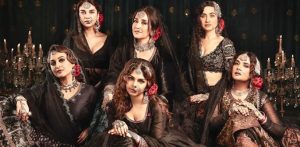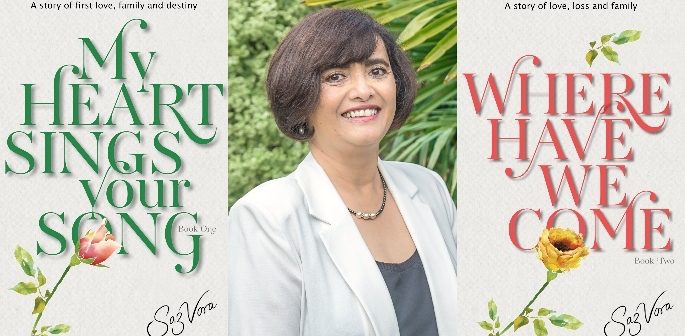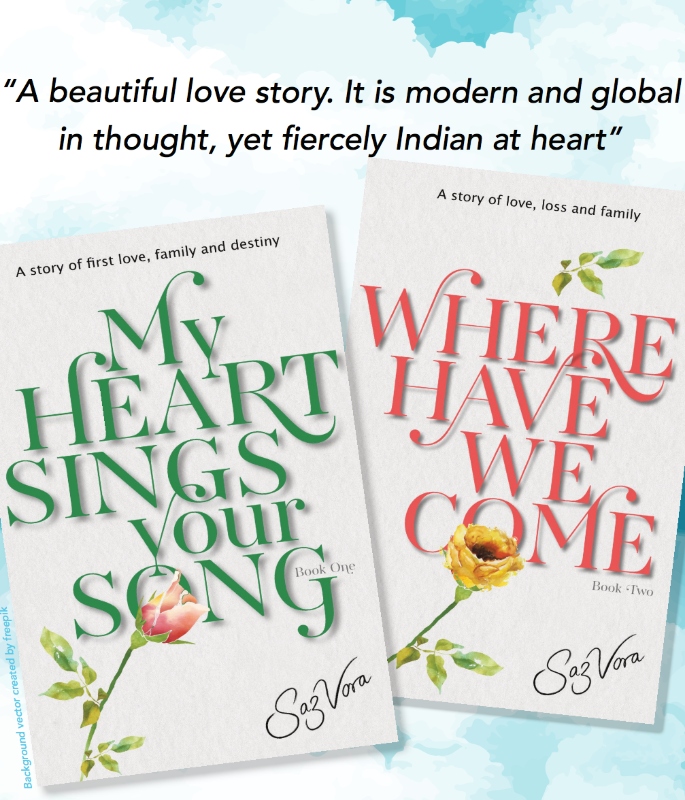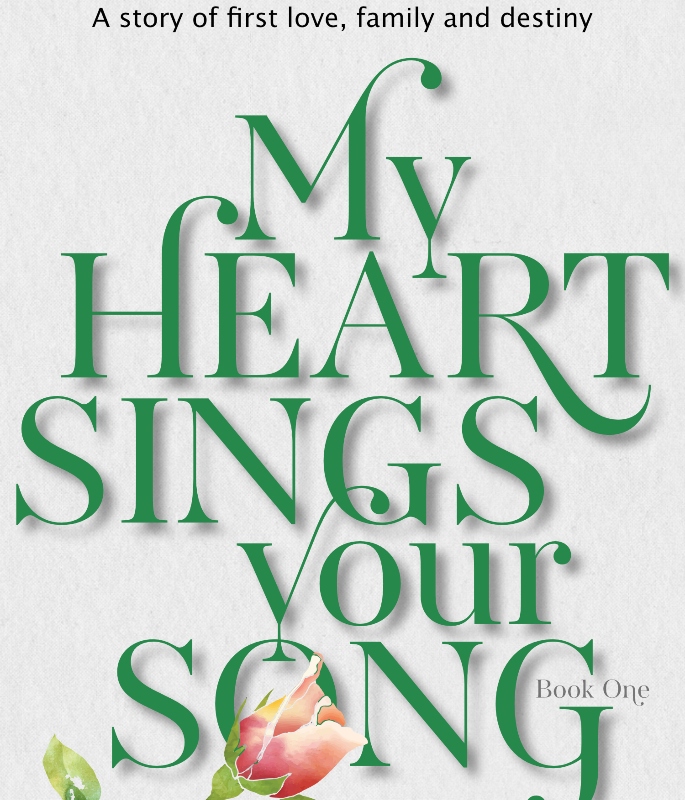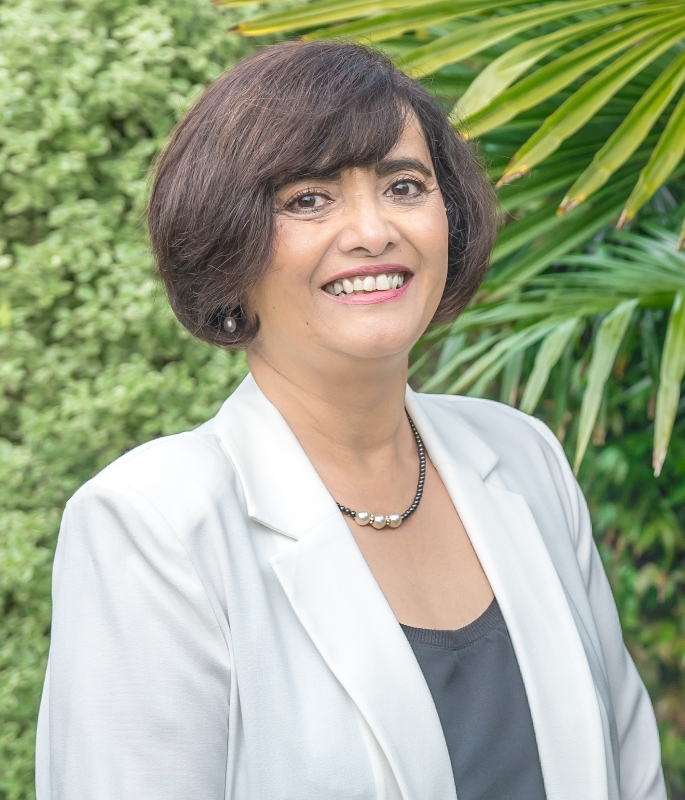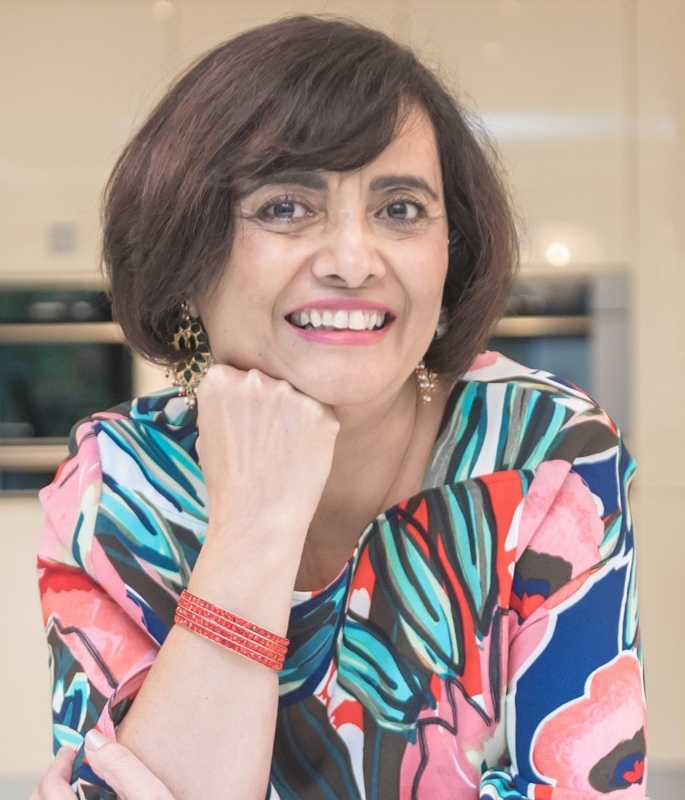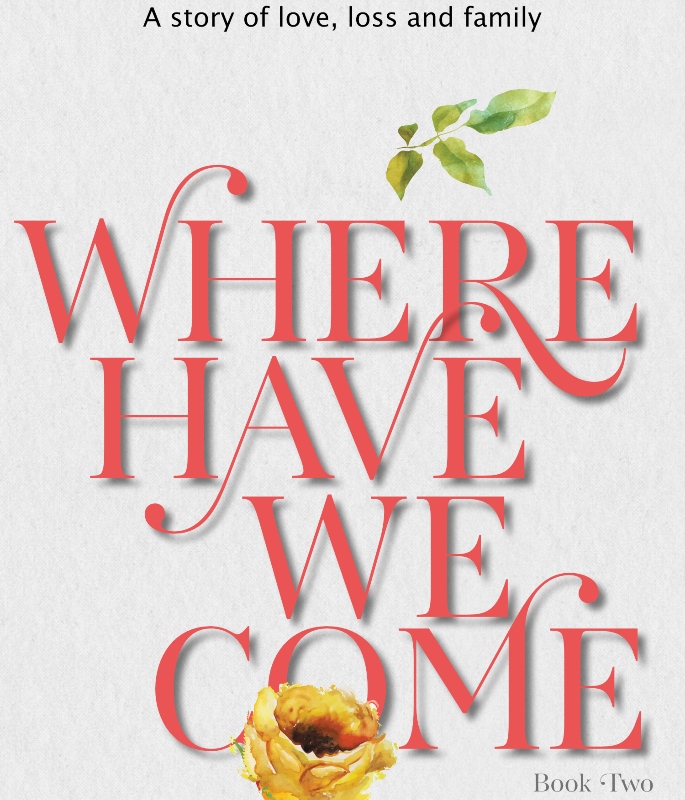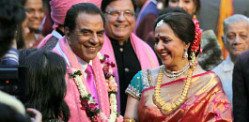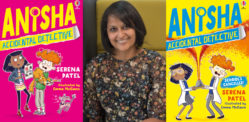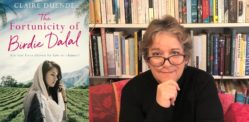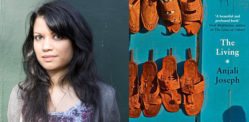"The scenes just kept coming into my mind."
Saz Vora is an author who bases her stories around South Asian characters, especially teens. Born in East Africa, Saz Vora and her family moved to the Midlands, England in the 1960s.
It was in the Midlands where she grasped her knowledge of the British and Gujarati Indian culture.
However, long before Saz Vora became a tremendous author, she once had a job in television production as well as teaching.
From her experiences of life, Saz Vora was able to recognise her growing passion for writing. This led her to write South Asian romance stories.
Saz Vora has written two parts of a story regarding family, destiny, loss and love. The first part of the story is called, ‘My Heart Sings Your Song’ (2020) and the second, ‘Where Have We Come?’ (2020).
Vora easily relates to the themes of both books such as depression, mental health, caste, child-death and much more.
Saz Vora wishes to portray the South Asian community through her books in the most accurate way possible. However, she does not agree with the mindset of the community and hopes for change.
DESIblitz exclusively chats to the amazing Saz Vora about her stories, the reasons behind them and more.
Which book was better to write and why?
The most straightforward book to write was ‘My Heart Sings Your Song’ (2020). Once I worked out the plot, the scenes just kept coming into my mind.
‘My Heart Sings Your Song’ (2020) brought back a lot of memories of growing up in the Midlands, my life at university and all the Bollywood films I loved to watch.
The songs I’ve included are songs I listened to while I wrote that book. I don’t read romance genre frequently, but I do dip in and out of them.
It goes back to my love of films, like Kabhi Kabhi (1976), Bobby (1973), Amar Prem (1972), to name a few. The whole boy meets girl and the obstacles they face to get their happy ending. I’ve used that in my book when Reena meets Nikesh’s family.
God, Nik, it’s like an RK Studio film. Rich boy, poor girl, and you know what happens next.
The intention was to write one book, which is ‘Where Have We Come’ (2020). That was difficult, the scenes were still too vivid, and when I was writing that, it was arduous to do. I’ve had to pace myself because it took me back to a painful time.
I received some feedback early on to create reasons for my character to react the way they did. That is how the first book became what it is now.
Those scenes and dialogues come to my mind at all times of the day and night. I keep a notebook, and I scribble, sketch, write descriptions. ‘My Heart Sings Your Song’ (2020) just seemed to pour out of me.
Why can’t Reena and Nikesh ever find happiness?
That’s a difficult one, can anyone find true happiness? When you are young, you tend to map out your life plan. If you are lucky, you have a good life, don’t lose anyone you love and are happy and content with yourself.
I suppose I was one of those people when I was growing up but things changed. I want to put my readers into situations that make them feel for the characters. They would also think about what they would do.
Life isn’t always happily ever after, and I want to write about real-life situations. Reena and Nikesh are a couple who meet and work on their relationship.
I am the type of writer that wants to explore people’s relationship and their courage to go on through adversity. Their ability to find a path that makes them and their lives better.
Why did you feel there had to be a second book to continue Reena and Nikesh’s story?
It was the other way round there was only one book, I wanted to write. The books are about young love and how people cope with marriage, work, family, loss.
I want to reflect that life can sometimes throw you off track. It is about growing together as a couple and maturing.
When I read a book, whose characters resonate with me, I want to find out more about them. Did they get what they wanted, are they content in their life together?
It is about how some couples’ relationships flourish through the added strains of sickness and death, while others diminish in adversity.
In both books, how do you intend to make the reader feel?
I want my readers to empathise with Reena and Nikesh. They should feel for Reena’s struggle with her guilt and anxiety.
I want people to understand that sometimes people who go through loss, have to acknowledge it. We have an attachment to the people who love us, and we mourn for the time we had with them.
“If you know of anyone who still thinks of someone they’ve lost, support them.”
Secondly, mental health is one of the most ignored diagnoses in South Asian society.
We use words like crazy, witches, spells, evil eye too often to describe a condition that can be tackled with support. I want to use storytelling to understand that anxiety, depression, postnatal depression are common.
Too often, women beat themselves over what has happened to them or their families.
What were the hardest scenes to write in both books?
The hardest scene to write in ‘My Heart Sings Your Song’ (2020) was when Reena discovers the letter from her mother. I knew what was vaguely going to be in it, but I found it challenging to put Usha’s words onto paper.
Many women feel like Usha does, and I know I’ve felt like that with my children. I am in awe of the women pioneers who came to this country from East Africa, India, Pakistan, Bangladesh in the early 60s.
They seldom talk about their experiences, many struggled with separation from their homeland. Their isolation in new communities who called them foreigners.
For the second book, all of it was difficult. The memories were too raw as it is semi-autobiographical. There were days when my emotions resurfaced again, the guilt, the sadness, the feeling of inadequacy.
Overall, I found it hard to write the last couple of chapters in ‘Where Have We Come’ (2020), to come to an ending with a place of hope. Reena just wasn’t responsive, all the characters in my books developed a voice and Reena wasn’t ready to deal with the loss.
She did what most people do, she buried her head in the sand and hoped for the best. I had to stop writing for a couple of weeks and found myself doing anything but write to hear her voice again.
What influenced you into presenting themes such as caste and postnatal depression in your books?
I’m still shocked to hear about postnatal depression not being recognised in the community. The way women suffer and carry on, the worst part of it all is that these issues manifest later in life.
Which by then, the women have lost the support network around them to cope. Mental health in all its guise is something the South Asian community often brush aside.
“As a whole, mental health has been neglected for a long time.”
No one is willing to say their daughter has postnatal depression and is struggling to cope with a new baby and running her home.
Instead, they say things like, she is too weak, too overprotective and an inadequate wife. It’s this narrative I want to stop.
Caste is another topic that concerns me. I know the reasons for the caste system in Vedic text and ancient society.
It brought about a societal order, but to adhere to that in the modern world does not make sense to me. My aim for both books is to open up dialogue about the issues raised.
The other reason for the inclusion of these topics is that I’m finding it difficult to relate to stories by South Asian writers. I seek stories about displaced people and how they adapt to their new life.
However, the stories that are published are often of moving away from the community to get a better life. Reading stories of people like us, help us understand our identity.
Too often in the diaspora, we are bombarded with stories of an intolerant community.
How do you incorporate your British and Gujarati Indian culture in your books?
The Gujarati community tend to celebrate all types of festivals, they like their parties, plays and gatherings. I’ve included one of my favourite festivals, Navratri; when most Gujarati families will practice traditional Gujarati folk dances.
I’ve also included words used by Gujaratis, we often hear Punjabi, Urdu words in everyday speech. However, did you know that Gujarati and Bengali are the fourth most common language spoken in England and Wales?
For the US it is the third most common language after Hindi and Urdu.
Reena embraces her Gujarati culture, volunteering at the Mandir (temple), her cooking and her clothing. She is the British voice in the book.
Nikesh embraces his Gujaratiness (if that’s a word) more because he arrived from a country that rejected him. He is what most children of immigrant families do, he follows his Gujarati custom without questioning just to keep his elders happy.
I believe you were once a teacher; do you ever miss it?
Teaching 15-18-year-olds was demanding and fulfilling in equal parts. I miss seeing the students become more confident as they understand the subjects and excel.
“I loved seeing my pupils grow into confident adults. It made me feel proud that I had helped them develop.”
That’s why I run the Young Panellist Short Film Course for the Short Film Competition for the UK Asian Film Festival. It allows me to interact with young people in the medium, I love short film analysis.
I don’t miss the paperwork that comes with the British education system. The constant tinkering by the government, the cuts in Art budgets, and the stresses on teachers to adhere to some formula for their pupils’ performance.
Mostly, I miss all the wonderful colleagues I worked with; teachers are the most dedicated, hardworking people I know.
How did writing your book series help you to touch on the birth of your first son?
I’ve wanted to write this story for a long time. It has sat in my computer since 2006, calling to me for years.
I had a severe anxiety attack in 2016, this time my talk therapy session helped and gave me the confidence to finish it finally.
I was encouraged to read more about my experience, I came across many women who had gone through a similar situation. Some chose to write self-help books, some articles, some use the medium of podcasts.
What the books have done is that they have helped me accept and deal with it. Retelling the experience has helped with the pain and guilt I have been holding.
I would advise anyone who has gone through a similar situation to find someone to listen to you. Someone to talk through your feelings, to acknowledge that you are sad.
What advice would you give to other authors and upcoming writers who suffer from anxiety like yourself?
Try and find time to write your thoughts. I decided to write a story; others write poetry, keep a diary, write a self-help book. I’ve found many ways to deal with it, find something that helps you, it doesn’t have to be writing.
If you’ve embarked on a journey to be a writer don’t stress if you haven’t written anything in days.
“Just find different ways to free your mind, music, dance, walking, exercise.”
Set realistic targets for writing. Sometimes you can’t write a thousand words a day. Write five hundred instead, if you can’t do that, write some dialogue, some descriptions of scenes, characters.
You’re still writing. Persevere, it took me nearly thirty years to write these books. Hopefully, it won’t take me another thirty to write the next.
But if it does, I’m not going to get anxious about it. I’ll write short stories instead or nothing at all.
Anxiety is a biological response, and we have the fight or flight response. It is a heightened state of awareness of our surroundings, the tightness in our stomach.
It kept our ancestors alive from danger. We just need to recognise it and find a way to cope.
How did it feel to be invited to participate in the School of Digital Arts (SODA) event?
I felt honoured to speak at SODA, and it’s not often you can meet with some of the industry’s great and the good.
I run the UK Asian Film Festival, Short Film Competition and was asked to discuss how we felt about digital technology. From the perspective of a minority voice, new technology enables us to be heard.
The use of smartphones and the web has opened up our knowledge of the stories of others. Whether it’s sharing a film on social media, writing blogs from the mountains of Afghanistan, sending reports from Syria.
Some short films submitted to the UKAFF are made using this technology, so it’s a good thing. Filmmakers no longer need deep pockets, or generous sponsors to make films.
I am hopeful that creating a central learning environment will mean that we will hear more diverse stories from communities that are underrepresented.
Other than the Reena and Nikesh series, have you got any other books/series in the pipeline?
I am currently writing a short story set in France and England. When I’m thinking about stories and characters, I usually collect songs and images.
“I have a Pinterest board to help me mull over the location, characters etc.”
I aim to have that out in the summer if all goes to plan. Sign up for my newsletter and follow me on social media to get updates.
I am also researching the next book in my University Series, which is also about two people who meet in their teens. We meet them again ten years later.
I’m reading a lot of books about India’s fight for independence, partition and emigration in the early 50s for that one.
As Saz Vora continues to grow and flourish with success, she has the passion and courage to be one of the best South Asian authors.
Saz Vora states that she has a new story in the pipeline. Let’s watch her grow and succeed as a recognised South Asian author.
Read more about Saz Vora on her website where you can also read her blog.














